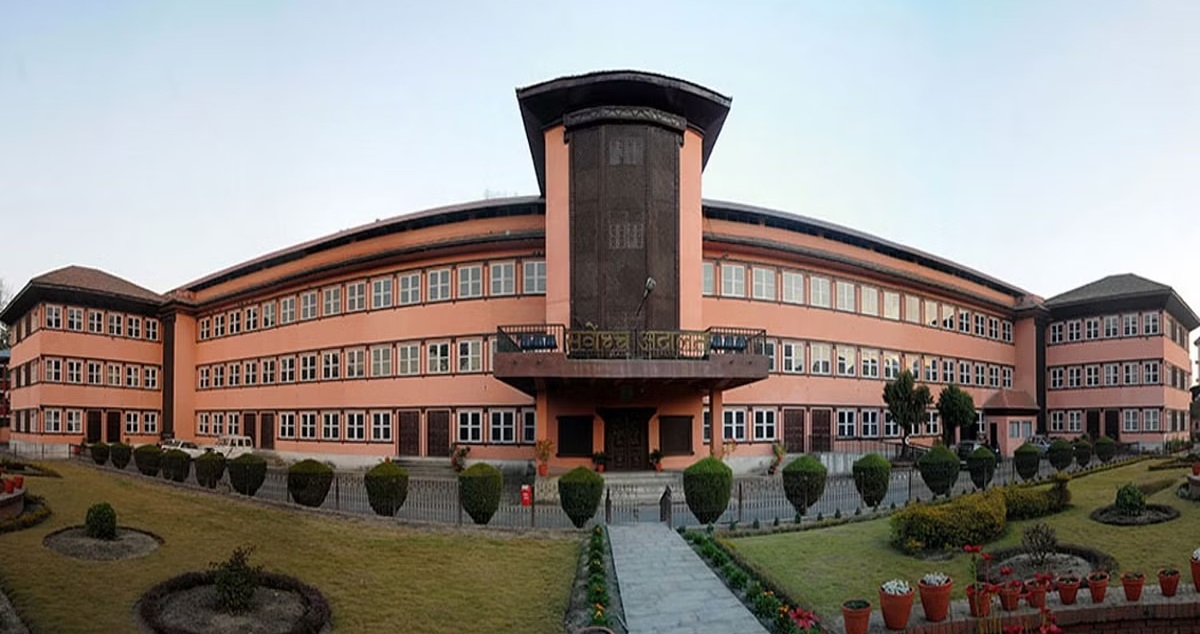
Kathmandu: The Supreme Court of Nepal on Sunday issued a short-term interim order blocking the implementation of recently ratified Citizenship Act that was authenticated by President Ram Chandra Paudel last week. A bench of Justice Manoj Kumar Sharma making a hearing on senior advocates Surendra Bhandari and Bal Krishna Neupane’s writ petition issued the short-term interim order instructing the government not to implement the act.
‘The government has been instructed to keep the act as it is’, Bimal Poudel, spokesperson of the Supreme Court of Nepal confirmed ANI. Furthermore, the apex body also has instructed the government to furbish an explanation for getting the bill authenticated summoning both sides for discussion. Nepal President Ram Chandra Paudel on May 31 this year ratified the bill to amend the Nepal Citizenship Act, 2063. Prior to the ratification by the state head, a meeting of the Council of Ministers on May 26 had requested President to authenticate the bill. The same bill was stalled by former President Bidhya Devi Bhandari last year which had invited a constitutional crisis in the nation.
The latest move of incumbent President Paudel also has raised questions over excise of duty and constitutional provisions. Previously, Bhandari had not authenticated the bill even after being passed by both houses and sent twice. A separate case was filed against the move of former President Bhandari back then which now is sub-justice at the Supreme Court. As per Article 113 (3) of the Constitution, the president can send back a bill passed by the federal parliament for reconsideration once. ‘In case the President is of the opinion that any Bill, except a Money Bill, presented for authentication needs reconsideration, he or she may, within fifty days from the date of submission of such Bill, send back the Bill along with his or her message to the House in which the Bill originated’, it says about an exception to mandatory certification of bills sent to the president.
However, Article 113 (4) requires the president to authenticate any bill sent for a second time after being passed by both Houses of Parliament. ‘In case any Bill is sent back along with a message by the President, and both Houses reconsider and adopt such Bill as it was or with amendments and present it again, the President shall authenticate that Bill within fifteen days of such presentation’, it states. The then President Bhandari refused to authenticate the bill violating that provision. On 14 August 2022, she returned the Citizenship Bill sent to her for authentication after being passed by both the House of Representatives (HoR) and the National Assembly. She had sent a seven-point message to inform the federal parliament and for deliberation, and another eight-point message for drawing attention.
At that time then President Bhandari had mainly raised two issues while sending the bill back. She had mentioned that the bill was silent about providing naturalized citizenship through marriage as per Article 11 (6) of the Constitution. ‘If a foreign woman married to a Nepali citizen so wishes, she may acquire naturalized citizenship of Nepal as provided for in a Federal law’, states Article 11(6) of the Constitution. Former President Bhandari pointed out that the Constitution clearly says federal law but the bill passed by the federal parliament did not have that provision. She had also raised questions about the provision requiring self-declaration by a woman to provide citizenship to her children. She had also drawn the House’s attention to other issues but had mainly asked the House to reconsider the two issues.
The bill does not propose any restrictions on foreigners marrying Nepali citizens while acquiring naturalized citizenship. The main opposition CPN-UML, to which Bhandari was affiliated before becoming president, has been protesting the removal of the provision in the report submitted by the State Affairs and Good Governance Committee of the HoR that required foreigners to marry Nepali citizens to wait for seven years to get naturalized citizenship. The bill passed by the federal parliament also has a provision to grant citizenship by descent to the children of those who received citizenship by birth through a one-time arrangement after the People’s Movement II in 2006.
Citizenship by birth was granted to persons born in Nepal before mid-April 1990, having permanent domicile and having been continuously resident in Nepal throughout their life through the one-time arrangement. The passed bill also allows citizenship to a person only through the name of a mother but has put four conditions for that. The child should be born in Nepal, should be residing in Nepal, the father should be unidentified and the person should make a self-declaration that the father has not been identified for that.
The person taking the citizenship certificate can choose to take the surname and address of either the father or mother. The bill has also paved the way for non-resident citizenship to anyone living outside the SAARC countries if there is proof that the person’s father/mother or grandfather/grandmother is/was a Nepali citizen. Bhandari had earlier authenticated an ordinance, sent by the then prime minister KP Sharma Oli after dissolving the House, that included similar provisions. The bill’s passage has cleared the way to citizenship for up to 400,000 people who have been deprived of their constitutional rights and remain stateless in their own country.

Post Your Comments